#carmina gadelica
Text
Brighid and Bee swarms: I will not molest the swarm queen, nor will the swarm queen molest me.
"Carmichael (1928), in his review of Scottish customs attaching to the Feast of Saint Brigit, speaks of what he calls 'a propitiatory hymn' sung to 'a serpent' which 'is supposed to emerge from it's hollow among the hills on St Bride's Day'. Some of the versions of the 'hymn', describe what emerges from a tom, 'the knoll', as rigen ran, 'a noble queen', and, on the basis of my argument hitherto, I take this to be a clear reference not to any serpent, but rather to the queen bee and, therefore, by implication, to Brigit herself.
La Bride nam brig ban
On the day of Bride of the white hills
Thig an rigen ran a tom
The Noble Queen will com from the Knoll,
Cha bhoin mise ris an rigen ran
I will not molest the Noble Queen,
's cha bhoin an rigen ran rium
Nor will the noble queen molest me.
By way of further support for this reading, an emendation of Carmichael's interpretation of a tom as 'the knoll' can easily be made, substituing for 'knoll', 'round heap', 'conical knoll', 'ant-hill', dictionary definitions of tom (Dwelly, 1918), one or all of which readily could be taken as referring to a bee-nest or bee-hive. Likewise, Carmichael's reading of rigen ran as 'noble queen' may also be open to an interpretation other than that offered by him here: the qualifying element ran, taken by Carmichael to be the adjective ran 'noble', constitutes a suitable soubriquet for a royal personage, to be sure, but it is also a word which might easily be confused with ràn meaning, among other things, 'melancholy cry', 'drawling, dissonant roar or cry' (Dwelly, 1918). Needless to say, the idea of a 'noisy' rather than a 'noble' queen slots in well with the tumult which accompanied swarming according to early writers (...)"
—Hearth-prayers and other traditions of Brigit: Celtic goddess and holy woman. Article by Ó Catháin (Séamas) in JRSAI 122 (1992), pp. 12–34.
#brighid#brigit#saint brigit#carmina gadelica#irish polytheism#irish recon#irish reconstructionism#scottish polytheism#scottish reconstructionism#scottish recon#brighid goddess#celtic recon#celtic polytheism#highlands#quotes#st bride#imbolc#imbolg
4 notes
·
View notes
Text
The Red-Stalk
Pluck will I the little red-stalk of surety,
The lint the lovely Bride drew through her palm,
For success of health, for success of friendship,
For success of joyousness,
For overcoming of evil mind, for overcoming of evil eye,
For overcoming of bewitchment,
For overcoming of evil deed, for overcoming of evil conduct,
For overcoming of malediction,
For overcoming of evil news, for overcoming of evil words,
For success of blissfulness--
For success of blissfulness.
-Alexander Carmichael, The Carmina Gadelica Vol. II
#folk charms#scottish folklore#saint brigid#charms and prayers#hymns and incantations#carmina gadelica
7 notes
·
View notes
Text
Force in my mouth
Sense be in my speech
The taste of nectar on my lips
Til I return hither.
1 note
·
View note
Text
Scotland… The Old Ways
The old people had runes which they sang to the spirits dwelling in the sea and in the mountain, in the wind and in the whirlwind, in the lightening and in the thunder, in the sun and in the moon and in the stars of heaven. I was naught but a toddling child at the time, but I remember well the ways of the old people. Then came notice of eviction, and burning and emigration and the people were scattered and sundered over the world, and the old ways disappeared with the old people. Oh they disappeared indeed, and nothing so good is come in their stead – naught so good is come, my beloved, nor ever will come”
- Carmina Gadelica – Alexander Carmicheal
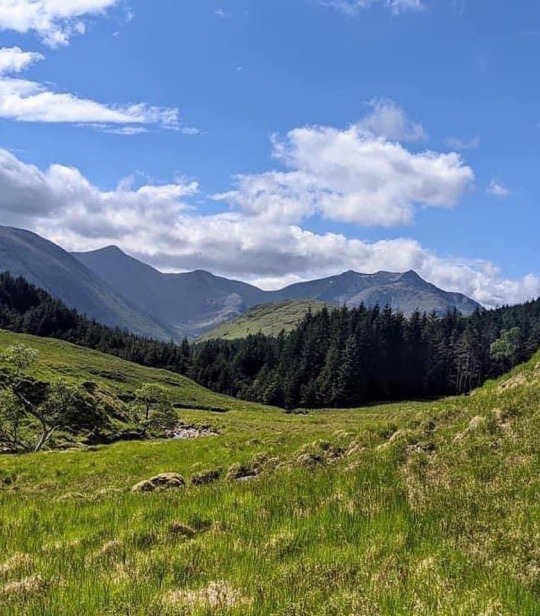
#ancestors alive!#what is remembered lives#memory & spirit of place#ancient ways#sacred ways#folkways#life#traditions#past times#scotland#the old people#runes#nature#Carmina Gadelica#Alexander Carmicheal
0 notes
Text
The Incense
In the day of thy health,
Thou wilt not give devotion,
Thou wilt not give kine,
Nor wilt thou offer incense;
Head of haughtiness,
Heart of greediness,
Mouth unhemmed,
Nor ashamed art thou.
But thy winter will come,
And the hardness of thy distress,
And thy head shall be as
The clod in the earth
Thy strength having failed,
Thine aspect having gone,
And thou a thrall,
On thy two knees.
0 notes
Text
Today I had a meeting with my Celtic teacher to discuss essay topics and we went on to bitch about the French governement in three languages, French, Gaelic and some English. Then I had to run through the city center because I was late for my next class on Terror and Romanticism. Does life get any better than this
4 notes
·
View notes
Text
118 The ocean blessing
O Thou who pervadest the depths,
Imprint on us Thy gracious blessing,
Carry us over the surface of the sea,
Carry us safely to a haven of peace,
Bless our boatmen and our boat,
Bless our anchors and our oars,
Each stay and halyard and traveller,
Our mainsails to our tall masts
Keep, O King of the elements, in their place
That we may return home in peace;
I myself will sit down at the helm,
It is Lir’s own Son who will give me guidance,
As He gave to Bran of Febail
What time he set stay to sails.
Boínn, Bríd, Dagda,
Lugh, Nuada, Oghma,
an Dagda of love,
Pour ye down from above the dew
That would make our faith to grow,
Establish ye us in the Rock of rocks,
In every law that love exhibits,
That we may reach the land of glory,
Where peace and love and mercy reign,
All vouchsafed to us through grace;
Never shall the canker worm get near us,
We shall there be safe for ever,
We shall not be in the bonds of death
Though we are of the seed of Caorthann and Fearn.
On the Feast Day of Cónocht an Fómhair, the Feast Day of Samhain,
The Feast Day of Grianstad an Gheimhridh, sun of mercy,
The Feast Day of Bríd, day of my choice,
Cast ye the serpent into the ocean,
So that the sea may swallow her up;
On the Feast Day of Cónocht an Earraigh, day of power,
Reveal to us the storm from the north,
Quell its wrath and blunt its fury,
Lessen its fierceness, kill its cold.
On the Day of Hogmanay on high,
Subdue to us the crest of the waves,
On Lá Bealtaine give us the dew,
On Grianstad an tSamhraidh the gentle wind,
The Day of Manannán the great of fame,
Ward off us the storm from the west;
Each day and night, storm and calm,
Be Thou with us, O Chief of chiefs,
Be Thou Thyself to us a compass-chart,
Be Thine hand on the helm of our rudder,
Thine own hand, Thou God of the elements,
Early and late as is becoming,
Early and late as is becoming.
Excerpt From: "Celtic Prayers and Incantations" by Alexander Carmichael. Scribd.
#theres some liberties taken here#to make it pagan#please lmk if any irish is wrong#manannán mac lir#prayers#btw thats the condensed version of Carmina Gadelica that i have
9 notes
·
View notes
Note
Forgive me if this is a foolish question, but would you happen to know if there’s any sources out there on historical prayer behaviors? IE body position, gestures, etc. I don’t come from a religious background, so I struggle to know to go about praying even when I know what I want to say
Gestures and actions during Irish/Gaelic Pagan prayer.
This is not a foolish question at all! In fact it is a great one. Honestly finding the right words is the hardest part. There is little in the way of documented proof of how pre christian Gaels prayed so reconstruction is necessary. This makes it tricky to find authentic sources, thankfully there is a few practice's we can reconstruct with a lot of certainty. (Sources in bracketed links)
Clockwise/Deiseal movement
The act of moving in a circle in a clockwise direction (deiseal) is frequently seen to be auspicious and is used in many Irish Christian rituals. Many of these practices are still done today, especially at holy wells or other pilgrimage sites such at the various stations on Croagh Patrick (link). The opposite of this is anti-clockwise or Tuathal is frequently used in curses. This is a recurring theme throughout Irish and Scottish folklore and has been argued to be partially of a pre Christian origin(Link to book containing a chapter on the topic specifically chapter 10)
This is usually done at Holy Wells while doing the rosary. The well itself or an object near it like a statue, rock or tree is encircled by the worshiper usually 3 or 7 times while reciting the rosary. (link)(link)(link). And is a still living practice.
This clockwise movement was also used in medieval rituals, with supposedly in the Book of Fenagh, an inauguration ritual is described where a bell shrine was walked around a king and his solders clockwise. (in book chapter 10).
The use of the word deiseal and its association with blessing led it in the past to be an equivalent to "bless you" after a sneeze. (link). The sunwise or clockwise direction is synonymous with blessings.
Head down, eyes up
The Carmina Gadelica contains a number of prayers from gaelic scotland. Many of which follow a standard christian practice and just as many are situational in nature like to be said while washing ones hands, however certain ones stand out as being representative of a greater traditions of actions due to their unusualness.
References to raising ones eyes (link) and leaving the palms open and outstretched are mentioned (link page 290)
Both women and men were said to curtsey with men doing a bowing motion much like a curtsey in that it involved the bending of the left knee to the side and the right one straight as a show of respect (link)
To summarise with a quote:
"So the lifting of hands, raising of the eyes, and the bowing of the head are all actions that could be done during our prayers. In raising our hands we show a gesture of giving, just as we ‘give’ prayers of thanks, or blessing, or whatever other purpose we might be praying for, especially since there seems to be a since that we’re meant to raise the palms up to the sky (or moon, more to the point) instead of simply holding our hands out, palms up. It’s less a gesture that might suggest we’re asking for a handout than it gives a sense that we’re reaching out."
-An Introduction To Gaelic Polytheism by Marissa Hegarty
Curse pose
While not involved with worship, poets when preforming a satire, often magical in nature were said to stand on one foot, with one eye closed, holding up one hand, and sometimes speaking with one breath. This seems to specifically used for cursing however.
What to incorporate into your pagan practice
I would then recommend that while praying, walking in a circle in a clockwise direction with a bowed head, eyes up, while holding out your hands with the palms skyward would be appropriate. I like to have one hand over the other. After the prayer has concluded a curtsey should be done.
If anyone else has anything to add please do so with what gestures and actions you take during prayers. I hope this answers your question and that it was at all helpful.
#mine#ceist#draíocht#gaelic paganism#celtic paganism#irish paganism#irish polytheism#gaelic polytheism#celtic polytheism#pagan#magic#prayer#paganism#witch#witchblr#research based paganism#please anyone share how you do it#sometimes a direction can be so important to someone that person is me#resources#gaelpol#also check out the two books ive linked#celtic#ireland#scotland#if anyone can source any examples from irish mythology or early lit that would be great#ive seen someone stuff but i can't source it so I did not include#especially deiseal related stuff
87 notes
·
View notes
Text
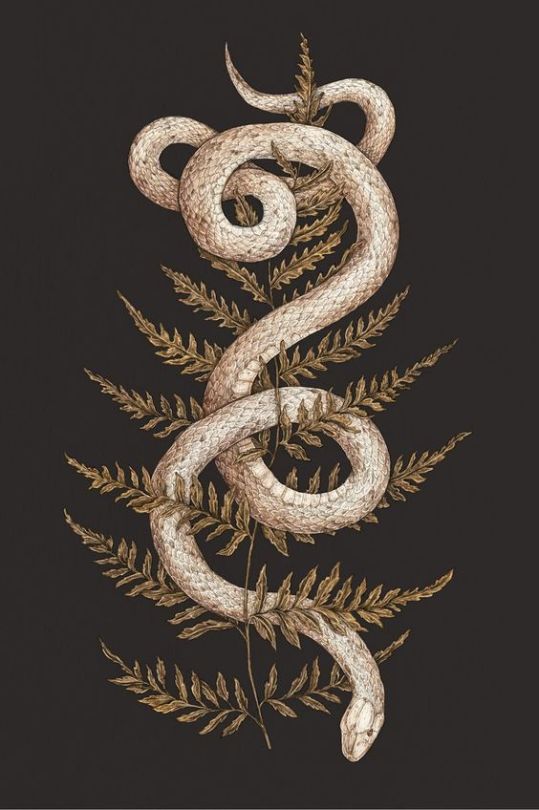
"The serpent will come from the hole
On the brown Day of Bríde" (Carmina Gadelica)
Art by Jessica Roux
436 notes
·
View notes
Text
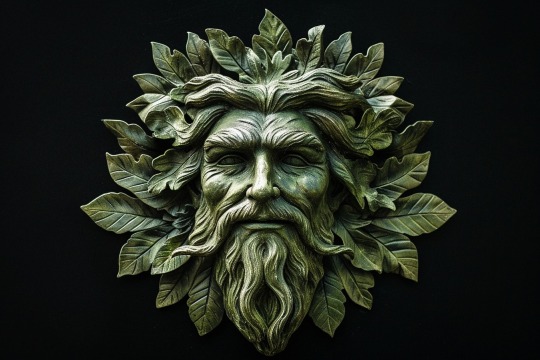
Am Beannachadh Bealltain (The Beltane Blessing)
Bless, O threefold true and bountiful,
Myself, my spouse, my children.
Bless everything within my dwelling and in my possession,
Bless the kine and crops, the flocks and corn,
From Samhain Eve to Beltane Eve,
With goodly progress and gentle blessing,
From sea to sea, and every river mouth,
From wave to wave, and base of waterfall.
Be the Maiden, Mother, and Crone,
Taking possession of all to me belonging.
Be the Horned God, the Wild Spirit of the Forest,
Protecting me in truth and honor.
Satisfy my soul and shield my loved ones,
Blessing every thing and every one,
All my land and my surroundings.
Great gods who create and bring life to all,
I ask for your blessings on this day of fire.
39 notes
·
View notes
Photo
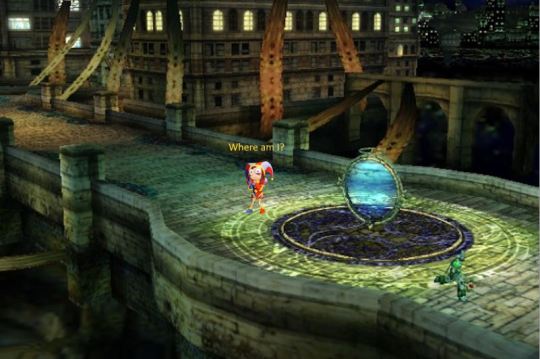
Pomni in Root Town Λ: Carmina Gadelica
63 notes
·
View notes
Text
Don't mind me, just a little Tag Directory to help make finding stuff a little easier ⬇️
1 note
·
View note
Text
The sain put by Mary on her Son,
Sain from death, sain from wound,
Sain from breast to knee,
Sain from knee to foot,
Sain of the three sains,
Sain of the five sains,
Sain of the seven sains,
From the crown of thy head
To the soles of thy feet.
Sain of the seven paters, one,
Sain of the seven paters, two,
Sain of the seven paters, three,
Sain of the seven paters, four,
Sain of the seven paters, five,
Sain of the seven paters, six,
Sain of the seven paters, seven
Upon thee now.
From the edge of thy brow,
To thy coloured soles,
To preserve thee from behind,
To sustain thee in front.
Be the helmet of salvation about thine head,
Be the corslet of the covenant about thy throat,
Be the breastplate of the priest upon thy breast,
To shield thee in the battle and combat of thine enemies.
If pursued, oh youth, from behind thy back,
The power of the Virgin be close to succour thee,
East or west, west or east,
North or south, south or north.
-Alexander Carmichael, Carmina Gadelica Vol. II
3 notes
·
View notes
Note
Hello Lucien! hope you're well. I was wondering if you could share some recommended ways to protect oneself from fires and burns? like a charm for the person or the home perhaps? i'm trying to get inspired to device my own and having trouble figuring out how to best approach it. Thanks in advance. Have a great week!
I know of two traditionally based approaches meant to specifically protect the home against fire.
The first approach entails acquring a Horse Skull and washing it with sanctified water while reciting Psalm 57 over it, then hanging or otherwise secreting it within the fireplace. I believe that the skull could be hung above the Hearth mantle as well, should the first option prove impossible.
The second approach instructs that, come noontide, a small Hexafoil is inscribed upon each lintel of the house. Thereafter, a plain taper is anointed with hallowed oil, lit, and then held up to lightly char each of the previously inscribed glyphs. As each Hexafoil is blackened, the following Caim (protection prayer) from Carmina Gadelica is recited:
"God bless the house,
From site to stay,
From beam to wall,
From end to end,
From ridge to basement,
From balk to roof-tree,
From found to summit,
from found to summit."
The remainder of the candle is then allowed to burn down within the Hearth.
As for personal charms against burns, I'm actually not aware of any. I learned a lot more about healing/soothing burns.
#anonymous#ask#protection#protection magic#house protection#wards#traditional magic#folk magic#traditional witchcraft#carmina gadaelica
29 notes
·
View notes
Text
'The Oldest Game' - the myth and folklore of the battle between Morpheus and Lucifer in 'The Sandman' on Netflix (a folklorist chimes in)

Lucifer and Morpheus in a 'wizard's duel', 'The Sandman' episode 4 'A Hope in Hell'
The memorable, grandiose scene in which Dream and the Morning Star face-off in a battle of cosmic scale is no mere magic of visual effects – it is a shamanic, shape-shifting dance of transformation which has its roots in myth and folklore.
It is a continuous chase in which its participants take on different shapes with one goal in mind: to overpower one another. In this form the mythical chase found its expression in the so-called 'wizard's duel', which we find in various European fairy tales and now before our eyes - as the Morning Star once again takes on the skin of the Serpent, poisoning the hunter-donning Morpheus in a visually stunning cosmic play.
Where does the transformation chase come from?
The Carmina Gadelica, a compendium of folkloric texts gathered in Scotland by the folklorist Alexander Carmichael in the 19th century, mentions a magical spell, or rather an occult power by the name of 'fith-fath' which can make one transform into something else or render them invisible. It is said that these transformations might have even occurred involuntarily. The Carmina Gadelica accentuates the importance of these spells to hunters, travelers and warriors, so that they could stay invisible and unrecognizable to animals and possible enemies.
The Mabinogion, a compilation of the earliest Celtic tales (first published in 1840), tells the story of Ceridwen, an enchantress of Welsh myth who had made a 'Cauldron of Inspiration'. The reason for making this magical cauldron is to help her disfigured son Morfran (Morvran ab Tegid) gain knowledge of the mysteries and the things to come. In this way, Ceridwen thought she could give her son a chance to prove himself to the world. As the year-long process of brewing a magical brew in the cauldron had begun, she employed a youth by the name of Gwion Bach to keep watch of the brew and to stir it as needed. One day, three drops of the brew fell out of the cauldron and found themselves on Gwion's finger. Feeling drawn to the liquid's power, he licked them off and instantly absorbed the mystical knowledge of all there is to come. Therefore, he knew this one thing as well – he must run, run from the wrath of Ceridwen, as this power was not his to have.
The sorceress sees him and begins the chase. Gwion, now having the power of transformation, turned into a hare trying to evade her. Ceridwen is now a lithe greyhound and there is no way for the hare to escape. Gwion runs towards a river and turning into a fish, escapes into the quick waters. A hungry and angry otter is the next form of Ceridwen, as she is hunting the fish. Gwion, swimming for his life, dons the wings of a bird in order to fly out of the water. The sorceress keeps up and turns herself into a hawk, a deadly bird of prey, ready to finish the shamanic, deadly chase. However, Gwion manages to outsmart her by becoming a grain of wheat on the floor of a barn, blending into the surroundings and becoming unnoticable. That is when Ceridwen becomes a black hen and finding the grains, eats Gwion in the process.
It is this Gwion, now imbued with the magical powers of the Cauldron of Inspiration, who later gets 'born again' and becomes the mythical poet Taliesin.
One whose knowledge transgresses time and space, as this knowledge is beyond them both. Shapeshifting is a primordial memory, an ancient form of magic so deeply ingrained into our cultural muscle that it is continually expressing itself. Masked dances of old, ritual plays, the theatre and the movies – all a part of the same magical urge to transform, to move to another state of existence.
- Heidi (@theatrum-tenebrarum)
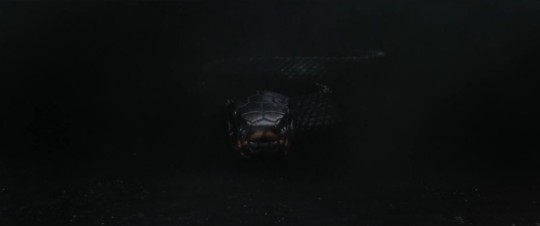
„I am a serpent. Horse-biting, poison-toothed.“ (Lucifer as a serpent in the transformation chase)

"I am a bird of prey. Snake-devouring, talons-ripping.“ (Morpheus as a bird of prey in the transformation chase, outsmarting Lucifer)

„I am a universe. All things encompassing, all life embracing.“ (Morpheus as a universe in the transformation chase)

„I am anti-life. The Beast of Judgement. The dark at the end of everything.“ (Lucifer, whose grand shadow looms in the background, is now anti-life, extinguishing the Life of a Universe)
Heidi (@theatrum-tenebrarum)
#thesandman#sandman#the sandman netflix#gwendoline christie#lucifer morningstar#lucifer#dream#morpheus#sandman netflix#hell#a hope in hell#folklore#folkloric#folklorist#neil gaiman#tom sturridge#myth#mythology#celtic mythology#mabinogi#ceridwen#tv#netflix series#analysis#cultural anthropology#shamanic#inspiration#anthropologist#shapeshifing#folkloreinpopularmedia
495 notes
·
View notes
Text
I TRAMPLE upon the eye,
As tramples the duck upon the lake,
As tramples the swan upon the water,
As tramples the horse upon the plain,
As tramples the cow upon the 'iuc,'
As tramples the host of the elements,
As tramples the host of the elements.
Power of wind I have over it,
Power of wrath I have over it,
Power of fire I have over it,
Power of thunder I have over it,
Power of lightning I have over it,
Power of storms I have over it,
Power of moon I have over it,
Power of sun I have over it,
Power of stars I have over it,
Power of firmament I have over it,
Power of the heavens
And of the worlds I have over it,
Power of the heavens
And of the worlds I have over it.
A portion of it upon the grey stones,
A portion of it upon the steep hills,
A portion of it upon the fast falls,
A portion of it upon the fair meads,
And a portion upon the great salt sea,
She herself is the best instrument to carry it,
The great salt sea,
The best instrument to carry it.
In name of the Three of Life,
In name of the Sacred Three,
In name of all the Secret Ones,
And of the Powers together.
1 note
·
View note